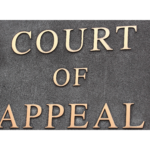What Will the DPP Consider When Deciding Whether to Prosecute a Criminal Offence?

If you are charged with a serious criminal offence – known as an ‘indictable offence’ – the police will refer the matter to the Office of the Director of Public Prosecutions (ODPP) who will decide whether to ‘elect’ (choose) to take the case on and, if they do so, whether to continue to prosecute the case.
If the ODPP does choose to take on the case, rather than refer it back to the police, it will then decide whether to continue to prosecute the existing charges, whether to replace them with different charges, or to withdraw the proceedings altogether.
For very serious cases – known as ‘strictly indictable cases’ (eg murder, aggravated sexual assault etc) – the ODPP will not refer the case back to police to prosecute but will need to decide how to deal with the case.
For state charges, the NSW DPP will make this independently from police, and will need to follow its guidelines in that regard.
The following outlines some of the prosecutorial guidelines that inform the decision of prosecutors regarding the continuation of criminal proceedings.
The Reasonable Prospects of Conviction Test
The first test that must be passed for prosecutors to pursue a case is that there is a reasonable prospect of conviction.
Prosecutors must prove all elements of a criminal offence beyond reasonable doubt at trial, a relatively high bar, particularly if there is limited evidence..
Prosecutorial guidelines note that the following should be considered in determining whether there is a reasonable prospect of conviction:
- Whether there reasonable grounds to believe any evidence might be excluded.
- Whether the prosecution witnesses are available, competent, compellable and reliable.
- The credibility and reliability of other admissible evidence in the prosecution case
The guidelines further advise that prosecutors should consider any defence open to, or indicated by, the accused, this can include:
- Any inferences that may be drawn from circumstantial evidence.
- Whether the prosecution is able to exclude beyond a reasonable doubt any reasonable hypothesis consistent with the accused being innocence.
- Any other matter that could impact on the prospects of conviction.
The Public Interest Test
The second test that must be satisfied before prosecutors continue with the case is whether prosecution is in the public interest.
An extensive, but not exhaustive, list of factors are listed in the guidelines which prosecutors must consider before determining a prosecution is in the public interest. These include considerations of:
- The seriousness, or conversely, the triviality, of the offence;
- The prevalence of the offence in the community, whether it is of considerable public concern and the need to denounce and deter the offending behaviour;
- Whether the offence is obsolete or obscure;
- The passage of time since the offence, having regard to its seriousness and the reasons for the delay;
- The accused’s degree of culpability;
- The accused’s criminal history and background;
- The accused’s age, physical health, mental health or cognitive impairment;
- Whether the offence occurred while the accused was serving a sentence, on bail or remand;
- Whether the accused is willing to co-operate in the investigation or prosecution of others, or the extent to which the accused has done so;
- The victim’s attitude to a prosecution;
- The victim’s age, physical health, mental health or cognitive impairment and whether the prosecution may have an adverse physical or emotional impact on the victim;
- The protection of the victim and the victim’s family;
- The likely outcome if the accused is found guilty, having regard to the sentencing options available to the court;
- Whether a sentence has already been imposed on the accused that adequately reflects the criminality of the conduct;
- Whether the accused has already been sentenced for other offences and the likelihood of any additional penalty being imposed, having regard to the principle of totality in sentencing;
- Whether any resulting conviction would necessarily be regarded as unreasonable or a miscarriage of justice;
- Any mitigating or aggravating circumstances of the offence;
- The availability and efficacy of any alternatives to prosecution, including disciplinary proceedings;
- The availability of compensation, restitution, reparation or forfeiture to any person or body following a successful prosecution, including any criminal compensation or confiscation;
- Whether the prosecution would be perceived as counter-productive, for example, by bringing the law into disrepute;
- The need to maintain public confidence in basic constitutional institutions such as the Parliament and the courts;
- Any special circumstances that would prevent a fair trial from being conducted;
- The likely length and expense of a trial if disproportionate to the seriousness of alleged offending
- The age, physical health, mental health or special infirmity of an essential witness.
Guidelines also provide a list of factors which must not be taken into account in determining whether or not to prosecute, including:
- The race, religion, gender, gender identity, national origin or political associations, activities or beliefs of the accused or any other person involved (unless the accused’s political associations, activities or beliefs are directly related to an offence);
- The prosecutor’s personal views concerning the accused or the victim;
- The possible effect of the decision on the personal or professional circumstances of those responsible for making it;
- Political pressure or interference, or any possible political consequences of the decision.
Special Considerations For Children
If the accused is a child, prosecutors must also take into account further considerations in determining whether a prosecution is in the public interest. These include:
- The seriousness of the offence;
- The child’s age, apparent maturity and mental capacity;
- The child’s prior record, including the circumstances of any previous caution;
- The availability and efficacy of alternatives to prosecution;
- The sentencing options available to the Children’s Court;
- The child’s family circumstances, if known;
- The likelihood that the prosecution would be excessively harmful to the child or otherwise inappropriate, having regard to any known circumstances.
Retrials
Where a trial has ended without verdict, or when a retrial is ordered after the accused’s appeal against conviction is upheld, prosecutors must consider whether or not a retrial is required. In doing so, prosecutorial guidelines state the following should be considered:
- If the trial ended without a verdict, whether the trial ended because the jury was unable to agree, or for another reason, or whether another jury would be in a better or worse position to reach a verdict
- If a retrial has been ordered after a successful conviction appeal, whether certain evidence has been ruled inadmissible
- In either case, factors such as the seriousness of the matter, whether and to what extent the accused has spent time in custody, the cost of a retrial to the community and to the accused, the views of the victim and police, and whether evidence is still available.
Where two juries have been unable to agree upon a verdict, a retrial will be directed only in exceptional circumstances.
Where a jury has reached a verdict on some charges but is undecided on others, prosecutorial guidelines indicate prosecutors should consider the seriousness of the remaining charges and the sentences the accused has received for the other charges, before determining whether a retrial is necessary.






